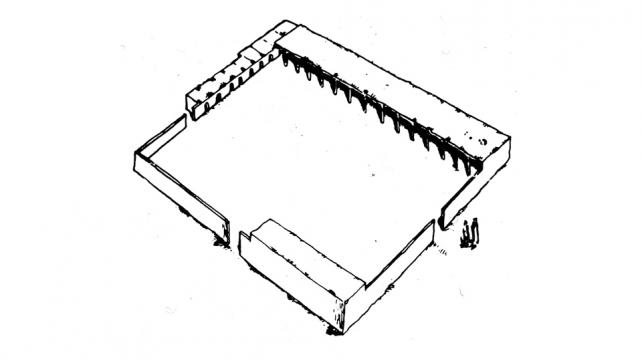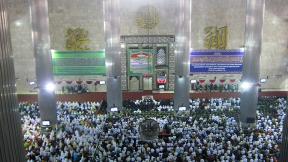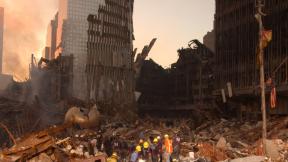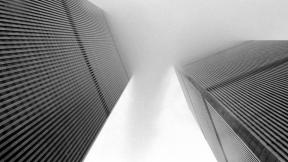
The streets were dark, the alleyways empty and the hour blessed. That made it the ideal time to head to the Masjid. Setting a precedent that would be followed by millions of Muslims worldwide after him, the Prophet headed briskly to his Masjid.
After wudu he entered the simple structure, made of clay bricks, date palm, and loose gravel on the ground. With no chandeliers to light the premises, he paused before beginning his prayers to gaze at the night sky, while reciting verses of the Quran that called on people to ponder God's signs in the heavens and on earth (Quran 3:190-200). Then, he would begin his prayer, praising God, begging for His guidance for humanity and seeking blessings for his contemporaries and those to follow.
After an intense session, he would rest momentarily, anticipating the start of the day's first prayer, Fajr. He waited for the Muslims to arrive, sleepy, but eager to begin another dawn with the remembrance of God.
Post-Fajr, the Muslims surrounded the Prophet as he sat calmly, greeting them with his characteristic smile and salams. Some would tell him of their dreams and he would tell them that they had no meaning. Sometimes he would interpret their dreams for them. Others would share experiences from the day before, the ordinary or the extraordinary. Others still, would reminisce about their lives before Islam and laugh while the Prophet would smile. But sometimes, serious issues were also raised and the Prophet would respond accordingly.
The Prophet's Masjid wasn't just a social hub though. It also served as a homeless shelter and a soup kitchen. Those with no money, food or connections would hang around as guests of the Muslims, who would bring food to share with them. This is a tradition that continues in many Masjids around the world today. These individuals in need were called the Ashab as-Suffah, the people of the raised platform, named after a platform which was situated in the northern part of the Masjid, covered with a roof but with open sides. They lived in the Masjid and devoted themselves to absorbing knowledge of Islam by observing the Prophet, learning the Quran and participating in discussions with him during the day. They were the first students of the Prophet's Masjid and this became the community's first school in Madinah. At one time Abu Huraira counted seventy of them. Abu Huraira, the Companion who narrated the most Hadith, himself was actually one of the Ashab as-Suffah. (He is named Abu Huraira for his love of cats. I wonder if his cats were in the Masjid as well. We do not know for sure. However, one report of the Bukhari collection of Hadith does say that “the dogs came in and out of the Masjid in the time of the Messenger of Allah, peace and blessings of Allah be on him, and they did not wash the Masjid with water on that account.”
At the time, the Masjid also served the wounded. Saad was wounded defending the city in the battle of the Ditch. The Prophet ordered a tent to be set up for him in the mosque, so that he could take care of his beloved companion.
The Masjid was also where the Prophet conducted the affairs of the baitual-maal, or the Islamic treasury. Here, Zakat would be collected and distributed by Bilal, the treasurer, who was also the caller to prayers for the community. It was the Prophet's habit to distribute all of what was collected to those in need.
When it came to serious issues, the Masjid served as the community's town hall. When the Prophet wanted to discuss something with the Muslims, he would ask Bilal to call the Azan, even if it was not yet time for one of the five daily prayers. The Muslims would arrive at the Masjid, pray, and the discussion would begin. One such emergency meeting took place when some women complained about their husbands beating them as many did before Islam. The Prophet called all of the Muslims to gather in his Masjid, led them in prayer, then gave a sermon condemning domestic violence. Other times, he would call a community meeting to seek consensus on a specific matter.
The Prophet's Masjid was no “men's club”. Women were seen attending prayers daily. In fact, the Masjid’s caretaker was a woman. There was no partition in the Prophet's Masjid in his lifetime. Women were independent participants in Islam. They made their Shahadah independently and took their oath of allegiance independently as men did. Once concerned about women's participation in Masjids, the Prophet ordered Muslim men to not stop women from attending. But prayers weren't the only reason women attended. Educating women was a priority for the Prophet and this was where he achieved this goal. Sometimes, when he felt that he needed to directly address women, he would walk after his main Khutba and give another one to the women present. When some women complained that the men monopolized his time, he set aside a special day and time just for teaching them. When a woman had no place to go, the mother of the believers, Aisha, said she had a small tent pitched for her in the mosque
Children were around the Masjid all the times. This was why the Prophet would sometimes shorten prayers when he heard a baby crying, knowing that prolonging it would inconvenience the child's mother. Children were also known for playing and even jumping on the Prophet's back while he was praying.
This playfulness though, wasn't just restricted to children. Poetry and a bit of entertainment were not foreign to the Prophet's Masjid. Imam Bukhari recorded an event when there was a troupe from Abyssinia (Ethiopia) who was performing in the yard of the Masjid and Aisha was standing behind the Prophet, her head on his shoulder, watching the performance. When the Prophet asked if she was sufficiently entertained, she said no, wanting to continue watching the play. Hassan ibn Thabit, the poet of the Prophet, used to recite his poetry in the Masjid for the Prophet and other Companions as well, May Allah be pleased with all of them. Hassan’s poetry was an exception since it was Islamic in nature. The Prophet otherwise prohibited the reciting of poems as well as conducting trade in the Masjid.
Aisha once said she used to beat the Prophet in races. But when she gained some weight, the Prophet beat her. Walking on the streets of Madinah I used to wonder where those races took place? Was it on the streets? Or was it in the yard of the Masjid or in the Masjid itself, which was next to the Prophet's family quarters? Since no one other than the mother of the believers has reported these races, most likely these races between husband and wife did not take place on the streets. Otherwise others would have reported it.
The Masjid was of course, mainly a place of worship. Worshippers will come in five times a day for congregational prayers or whenever they felt like coming to Masjid for prayers. With recitation of the Quran reverberating throughout it, the Prophet would enter his Masjid with his right foot first saying “Bismillah. In the name of God, O God, open for me the gates of Your mercy”. The Prophet would pray only Fard in the Masjid and offered other prayers in his quarters. He would leave the Masjid with his left foot, saying “Bismillah. In the name of God, O God I beg for Your blessing.”
The Masjid was open to all, even to those who were not respectful of it. It was right in the Prophet's Masjid that some Bedouin drifter came and started urinating in it. Some of the companions rushed to stop him, but the Prophet asked them to leave him alone saying "…you are expected to deal with people gently..."
On some days, the Prophet's Masjid was a venue for receiving delegations, Muslim and non-Muslim, like the group from Yemen led by a Christian bishop. They had come to debate with the Prophet about Christianity. Their discussion has been recorded by Muslim scholars. In the midst of their visit, they expressed their need to offer prayers. The Prophet pitched a tent within his very own Masjid for the visiting Christian delegation to celebrate what some consider to be a Sunday worship while other scholars consider it to be more significant celebration like a Christmas mass.
The Prophet's Masjid was the thriving center of the community life. He built it with his own hands, with the help of his beloved fellow Muslims. He invested his heart, time and life in it. It was a simple place filled with dynamism and spirit, serious learning and lighter moments of life. It was open to all, embracing humanity from all walks of life, men, women, children, rich, poor, homeless, Muslim, non-Muslim.
That was the Masjid of the Prophet.
Peace and blessings of God be upon him. Allahummah salle ala sayedina Muhammad wa ala ale Muhammad. That was where the Caliphs of Islam, the teachers of the Ummah, and the children, future leaders would roam. May Allah be pleased with all of them.
Try this: compare your Masjid to this description of the Prophet's. Develop a checklist and encourage other Masjid-goers to offer their assessments. Then, make improvements accordingly.








Comments
What a revealing model of
What a revealing model of what our Majid can become! Insha Allah.
I completely agree that we
I completely agree that we should set a standard of how the Prophet had his Masjid and relay that to all Masjids. Im happy i came across this.
Add new comment